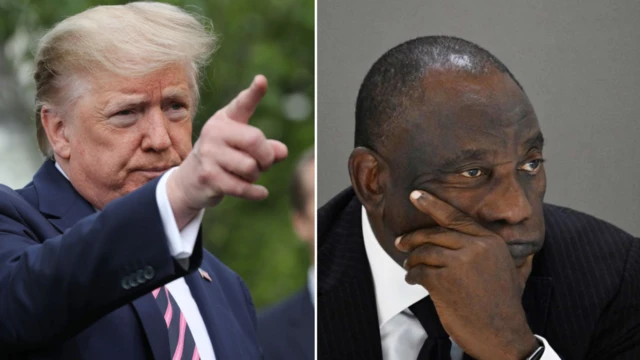As Ghana marks the first 100 days of President John Dramani Mahama’s administration in 2025, Deputy Director of Operations at the Presidency, Mustapha Gbande, has highlighted significant reforms in education, agriculture, security, and public accountability.
The new government, he insisted, has not only laid the foundations for national recovery but done so with urgency and efficiency, in sharp contrast to its predecessor. Gbande noted that, one of the clearest indicators of change is the drastic reduction in ministerial appointments.
“With ministers, 110 came up to be the most incompetent setup of government ever to have happened to this country… Today, we are 56″
Mustapha Gbande, Deputy Director of Operations at the Presidency
This restructuring, he argued, was essential to removing bureaucratic excess and directing focus to tangible service delivery.
Gbande lauded the leadership of Education Minister Haruna Iddrisu, praising his efforts to reform the sector without foreign academic credentials.
“If you see the contributing restructuring of the Ministry of Education… it should tell you that there was no foundation for this government to build on”
Mustapha Gbande, Deputy Director of Operations at the Presidency
Among the initiatives being fast-tracked are the reintroduction of sporting activities, abolition of the double-track system, and enhancements to the school feeding programme.

Enforcement and Institutional Renewal
National service, once riddled with financial corruption and inefficiency, has also undergone changes. Gbande contrasted the current situation with the past, when ghost names reportedly inflated public spending.
“54,000 ghost names were used to bleed our public purse,” he said. Today, national service personnel are paid on time, and the program is now aligned with food security goals, with youth being mobilized into agriculture.
A flagship initiative, Feed Ghana, has replaced the former government’s Planting for Food and Jobs. Gbande described the latter as a “Ponzi scheme” and emphasized that the new policy is grounded in transparency and results.
Mechanization is also a key feature, with budget allocations being made toward establishing agricultural service centers to empower farmers across the country.
Gbande emphasized that the NDC government is actively pursuing justice in areas previously neglected.
“We are hearing of crimes in the last eight years. We never had the opportunity to hear about those crimes”
Mustapha Gbande, Deputy Director of Operations at the Presidency
According to him, “politically incentivized crime, money laundering, cybercrime,” and drug-related offenses are now receiving attention through a dedicated security response team.
While the Bawku conflict remains a concern, Gbande noted that the administration is treating it with urgency. He said efforts are underway to ensure that “this will be the last episode of the Bawku conflict we will see.”
Gbande positioned the administration as one grounded in the everyday realities of ordinary Ghanaians. “We are not elites. We are ordinary Ghanaians, and that’s how President Mahama espouses himself.”
This philosophy, he suggested, is at the heart of the administration’s rapid pace and clear priorities.

Despite inherited challenges, ranging from a crushed economy to incomplete government structures, the Mahama government has, within just three months, filled most leadership positions, passed a budget, and initiated reforms.
“Within three months, because of the exigencies and the needs of this country, a government is 80% formed,” he stated, arguing that previous administrations had longer transition periods.
He pointed to the Mills administration taking six months to dismiss prior appointees, while former President Mahama took up to 8 months to set up his full cabinet. Even President Akufo-Addo, he noted, took about eight months as well. In contrast, Mahama’s current government is already showing “the positives” in under 100 days.
“We are laying a foundation but with speed as compared to the past,” Gbande emphasized.
The administration insists that the pace is not only strategic but necessary, given the depth of economic and institutional decay it inherited.
READ MORE: President Mahama Outlines Bold Plans to Drive Business Transformation



















